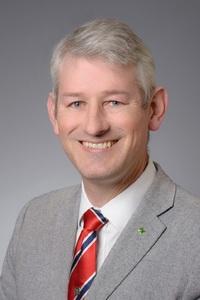Jonathan Sprinkle
Professor of Computer Science
Professor of Civil and Environmental Engineering
Professor of Electrical and Computer Engineering
Member, ISIS Executive Council

Jonathan Sprinkle has been a professor of computer science at Vanderbilt University since 2021. He is a member of the Institute for Software Integrated Systems, where he serves on the Executive Council with responsibility for partnerships. His research interests and experience are in model-based approaches to cyber-physical systems, and he teaches courses ranging from systems modeling and control to mobile application development and software engineering. In 2022, he led the hardware team that enabled the largest coordinated driving experiment in history—100 cars with customized ACC controllers—in Nashville, TN on I-24. Prior to joining Vanderbilt, he was the Litton Industries John M. Leonis Distinguished Associate Professor of Electrical and Computer Engineering at the University of Arizona, and the Interim Director of the Transportation Research Institute. In 2020 he was named a Distinguished Scholar of the University of Arizona. From 2017-2019 he served as a Program Director in Cyber-Physical Systems and Smart & Connected Communities at the National Science Foundation in the CISE Directorate. In 2013 he received the NSF CAREER award. His work has an emphasis for industry impact, and he was recognized with the UA "Catapult Award" by Tech Launch Arizona in 2014, and in 2012 his team won the NSF I-Corps Best Team award.
Education
Ph.D., Electrical Engineering (2003)
Vanderbilt University
M.S., Electrical Engineering (2000)
Vanderbilt University
B.S., Electrical Engineering, Computer Engineering (1999)
Tennessee Technological University
Projects
- CPS: Frontier: Computation-Aware Algorithmic Design for Cyber-Physical Systems
- SCORE Computational Cybersecurity in Compromised Environments (C3E) Workshop
- Conference: US-Taiwan Workshop on Smart and Connected Communities, Agriculture, and Cyber-Physical Systems Research
- Hot Topics on the Science of Security (HotSoS) Symposium
- High Confidence Software and Systems Coordination Support: Supplement to the Cyber-Physical Systems Virtual Organization: CPS Community and the Data Revolution
- Cyber-Physical Systems Virtual Organization: CPS Community and the Data Revolution
- Transition to Practice for Energy-Saving Cruise Controllers
Areas of Expertise
Model-based design, vehicle automation, advanced driver assistance features, software for CPS
Research Interests
Transportation and Mobility, Societal-scale CPS
Most Important Research Results
In his career he has been a part of the following high-impact activities: Largest Open-road ACC test (2022), First Open-Road Demonstration of Adaptive Cruise Control string instabilities (2018), First traffic wave dampening with a single automated vehicle (2016), First model-based operation of an Autonomous Car by 4th Graders (2016), First model-based Full-sized Autonomous Car testbed (2012), Model-based Approaches in the DARPA Urban Challenge (2007), and First live Dogfighting of a full-scale UAV vs. an U.S. Air Force F-15 Piloted Jet (2004).